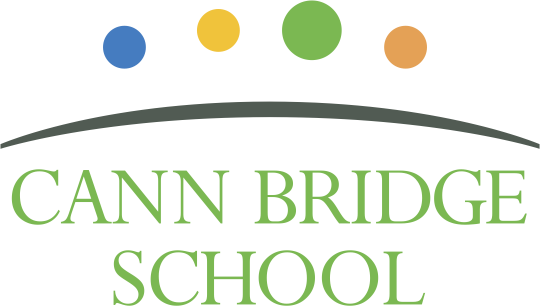Interventions & Provision
We employ a comprehensive range of interventions and provision to address the diverse needs of our learners holistically. It is important to note that not every intervention is necessary for every individual, and the duration of specific interventions may vary. At Cann Bridge, our interventions are tailored to support the learning, progress, and individual needs of each learner.
Attention Activities: Attention Activities (AA) is an approach designed to engage and enhance the attention and communication skills of learners. It involves a series of structured and highly visual activities that aim to capture attention, stimulate curiosity, and promote active participation. By using visually engaging materials and activities, Attention Activities helps individuals develop attention, focus, listening skills, and receptive language. It also encourages social interaction, turn-taking, and communication within a supportive and inclusive environment, fostering confidence, self-expression, and overall engagement in learning.
Augmentative and Alternative Communication: In addition to PECS, we utilise other devices to assist children and young people who experience difficulties with speech. This may involve utilising advanced computer technology, such as tablets with Proloquo2go, or utilising equipment such as switches and objects of reference.
Blockworx: Is a therapeutic approach that uses block building activities to promote social interaction, communication, and teamwork among learners. Learners are assigned specific roles, such as engineer, supplier, and builder, and work collaboratively to complete a project. This therapy helps develop social skills, such as turn-taking, sharing, and problem-solving, while also enhancing fine motor skills, creativity, and concentration. Blockworx provides an engaging and enjoyable platform for learners to learn and practice important skills in a structured and supportive setting.
Breakfast Club: At Cann Bridge we offer a Breakfast Club within the school operating hours, this runs from 9.15 AM until 10.00 AM every morning. The Breakfast Club offers pupils a calm and nurturing environment that focuses on healthy eating, emotional wellbeing and personal hygiene. During the session we support pupils to expand their dietary intake and build a healthier relationship with food based on knowledge from Avoidant and Restrictive Food Intake training. We support pupils to understand the importance of regular teeth cleaning and dental hygiene with support and training from Peninsula Dental School. The session is run by one of our ELSA trained staff who provide opportunities to support pupils to develop healthy relationships and understand their emotions. Breakfast Club is funded through Pupil Premium and pupils access this provision by referral.
Child and Adolescent Mental Health Services (CAMHS): The CAMHS team plays a crucial role in evaluating and providing support for children and young people facing emotional, behavioural, or mental health difficulties. They conduct functional assessments of behaviour, sensory profiling, and offer assistance and guidance to school staff and caregivers. This is accessed by referral
Educational Psychology: The school is assigned a dedicated link Education Psychologist, who is part of the PCC integrated SEND services. The primary focus of this service is to collaborate with school staff and families to enhance educational outcomes, social and emotional well-being, and personal development of children and young people through the application of psychological principles. This is provided by the Local Authority (whilst the school buys additional time) and is accessed by referral.
Hydrotherapy: Our school features its own hydrotherapy pool, which is utilised to support programs developed by our Physiotherapy team.
Intensive Interaction: Intensive Interaction is an approach specifically designed to assist children and young people at the early stages of development. It aims to support the growth of early interaction skills, teaching them how to enjoy the company of others, establish connections, and understand and practice communication routines.
Makaton: Makaton is a communication system that incorporates signs and symbols to aid in communication. It focuses on developing essential communication skills such as attention and listening, comprehension, memory, recall, and the organisation of language and expression. Makaton signs are based on commonly used gestures.
Occupational Therapist: Richard Wooliams from Blue Sky Therapies visits the school on a weekly basis to offer hands-on support to individual children and young people, as well as advice to staff. This support may involve conducting sensory profiling or demonstrating techniques like ‘Brushing’. This is accessed by referral.
Paediatric Physiotherapy: A physiotherapist is available at the school on a weekly basis, providing support to individual children and young people and advising staff on the best ways to promote their physical development. This therapy is provided by the Local Authority and accessed by referral.
Picture Exchange Communication System (PECS): PECS is an Augmentative and Alternative Communication system that employs visual symbols to teach learners how to communicate with others. The aim is to foster intentional, functional communication and enable users to express their wants and needs effectively.
Play Therapist: we have a visiting Play Therapist works who works closely with some learners to address emotional, behavioural, and social difficulties. They create a safe and supportive environment where children can express themselves, explore their feelings, and work through challenges through play. Through various play techniques and activities, such as art, storytelling, and role-playing, the Play Therapist helps children develop coping skills, improve communication, build self-esteem, and manage emotions. They collaborate with teachers, parents, and other professionals to ensure the child’s overall well-being and progress. This is accessed by referral on a needs basis.
Playworkx: We utilise a program called Playworkx, which integrates elements of Theraplay. This approach is designed to promote and enhance attachment, self-esteem, trust in others, and joyful engagement among our learners.
Rebound therapy: Rebound therapy, or trampoline therapy, offers multiple benefits to learners. It provides sensory stimulation through the bouncing motion, benefiting learners with sensory processing difficulties. Additionally, it promotes physical development, cardiovascular fitness, emotional well-being, and social interaction. Rebound therapy can be used therapeutically for various conditions and is seen as a fun and motivating activity that encourages participation and adherence to therapy programs. Rebound therapy is conducted under the supervision of trained staff to ensure safety and customise activities to individual needs which are monitored and assessed leading to certificates of progress.
School Dog: We are currently training our own school dog, a Cockerpoo called Willow. This breed is known for being loyal, friendly, intelligent, and eager to please. They have hypoallergenic, non-shedding coats. Numerous research studies highlight the benefits of having therapy dogs in schools, which include reducing anxiety, fatigue, and depression, promoting physical healing, lowering blood pressure, and providing emotional support. In addition to these benefits, we hope that our school dog will help learners who may have heightened sensitivity towards dogs, gradually reducing their reactions over time. Furthermore, the presence of the school dog will assist learners with communication, independence, responsibility, and social situations.
SoSAFE!: SoSAFE! provides our staff, parents, and caregivers with skills and simple visual tools to enhance social, social-sexual, and social safety training for children and young people in our school. It employs a standardised framework of symbols, visual teaching tools, and concepts to teach strategies for developing safe and measured relationships. Additionally, it provides visual communication tools for reporting instances of abuse.
Speech and Language Therapy: Our Speech and Language Therapy team works in collaboration with our staff to create a Total Communication environment. Many of our children require assistance in understanding and using spoken language, and they need support to effectively communicate their basic needs, wants, and desires. Total communication utilises various methods, including body language, facial expression, sign language, gestures, symbols, music, contextual cues, and objects, to facilitate understanding. This therapy is provided by the Local Authority and accessed by referral.
Tacpac: Tacpac combines touch and music to facilitate structured sensory communication between two individuals. This approach promotes sensory alignment and helps children and young people with sensory impairment, developmental delay, complex learning difficulties, tactile defensiveness, and limited pre-verbal levels of communication.
TEACCH: The TEACCH approach focuses on developing individualised programs based on the skills, interests, and needs of each child or young person. It involves organising the physical environment, creating schedules and work systems, establishing clear and explicit expectations, and utilising visual materials effectively to foster skill development. This approach empowers children and young people to utilise these skills independently, without relying on direct adult prompting and cueing.
Advisory Teachers: Advisory specialist teachers for Deaf Inclusion and Visual Impairment visit the school as required, providing hands-on support to individual children and young people and offering guidance to staff. This is provided by the Local Authority and accessed by referral.

